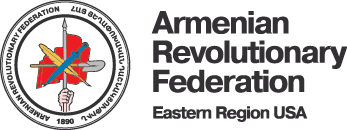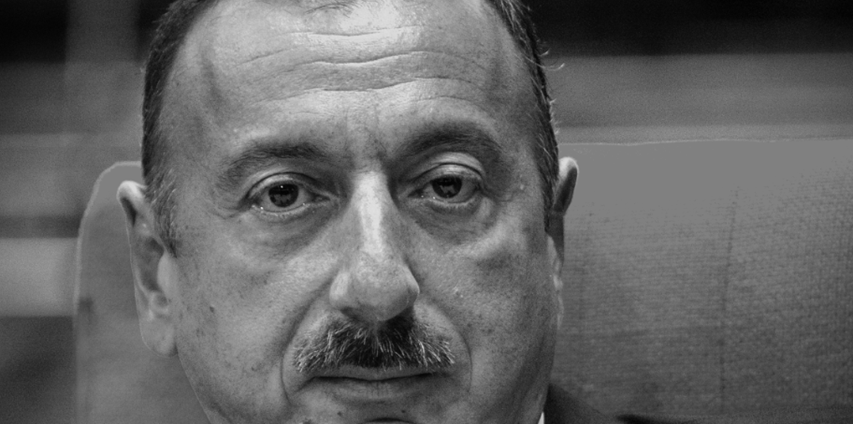Aliyev’s War on Peace: Azerbaijan’s Deadliest Ceasefire Violation to Date

When Azerbaijani military officer Ramil Safarov hacked Armenian lieutenant Gurgen Markarian to death in 2004 during a NATO Partnership for Peace program in Hungary, Azerbaijani officials praised Safarov for his violent murder. The Azerbaijani National-Democrat Party awarded Safarov with the title of “Man of the Year 2005.” This award was given by the former minister of internal affairs of Azerbaijan, Iskander Hamidov.
“I don’t care how Ramil Safarov killed the Armenian officer. The most important thing is that there is one Gurgen less and the more Azeris will kill Armenians, the less there will be left,” Hamidov was quoted as saying.
Azerbaijan arranged Safarov’s extradition from Hungary in 2012 with the promise of him carrying out his sentence in his native country. Instead, Safarov was pardoned by a presidential decree and made a national hero. The deceitful release of a convicted international criminal sanctioned and promoted further anti-Armenian sentiments in the country. Thus, ethnic hate and intolerance define the morals Azerbaijani authorities strive to impress on society.
The news of Safarov and his release coincided with another troubling development that spoke to the fact that killing an Armenian isn’t a crime in Azerbaijan. A 19-year-old student at Baku’s State Oil Academy, Farid Hagverdiev, developed a shoot-em-up video game with his peers titled, “Under Occupation,” which is similar to other violent first-person games such as “Call of Duty.” The video game encourages players to shoot and kill Armenians. Hagverdiev stated to EurasiaNet.org that “by creating the game we wanted to support the patriotic spirit in our youth, which I hope we accomplished successfully.”
In line with its state-sponsored anti-Armenian policy, Azerbaijani officials applauded the development of the video game and saw it as a means to encourage youth to support Azerbaijan’s violent efforts to invade the Nagorno-Karabagh territory. According to EurasiaNet.org, the Azerbaijani Ministry of Youth and Sports organized a promotional presentation of the video game.
Azerbaijani government behavior and policies toward Armenians have long been of a hostile nature. Anti-Armenian policies resulted in the wide-scale pogroms and deportations of hundreds of thousands of Armenians from cities such as Maraghar, Sumgait, and Baku spanning between 1988 and 1990, and more recently the destruction of a 6th-century Armenian cemetery and its 10,000 hand-carved cross-stones (khatchkars) in 2005—this beside the hundreds of ceasefire violations and killings of Armenian civilians and military personnel through sniper attacks.
The Organization for Security and Cooperation in Europe (OSCE) Minsk Group—co-chaired by France, the United States, and Russia—has continuously failed to condemn Azerbaijan for its regular ceasefire violations. Each violation has been met with a cowardly response in line with its policy of false parity. The international community has appeased Aliyev, a proven despot, for far too long.
With the failure of the international community to condemn his treacherous and violent behaviors, it comes as no surprise to see Aliyev emboldened by over two decades of international impunity. Thus, over the last several days, he has orchestrated the most violent of Azerbaijani violations since 1994.
Gone unchecked, Aliyev continues to breach the Geneva Convention. The Azerbaijani military willfully killed and injured innocent civilians last week, including a 12-year-old boy, Vaghinak Grigorian, who was killed in his schoolyard. There were incidents of unlawful and deliberate destruction of properties. Aliyev also misused a flag of truce when it announced a so-called unilateral ceasefire, but continued hostilities. These are all violations listed as war crimes by the International Criminal Court.
Nagorno-Karabagh has the historical and political right to self-determination and independence as many other newly emerged nations. On Oct. 24, 1974, the United Nations General Assembly passed a resolution that affirmed the universal right to self-determination. The Savings Clause provision specifies that the right to self-determination may not be constrained by assertions of territorial integrity when a people have been oppressed.
Nagorno-Karabagh has proven to be an exemplary democracy in the region through its outstanding political and social development. On the other hand, the government of Azerbaijan continues to pose a threat to regional peace through its continued repressive behavior at home and its war-mongering and violent acts toward Nagorno-Karabagh and Armenia. One thing is clear: The international recognition of the Nagorno-Karabagh Republic, which lawfully emerged within the framework of international norms, is the only avenue to peace and stability in the region.
Statements by the international community must clearly identify the aggressor. World leaders must go beyond the ineffective and unfair practice of equal blame and directly condemn Aliyev’s destructiveness. Sincere and truthful condemnation is the only way we can secure peace in the region.
Source: Armenian Weekly Mid-West

